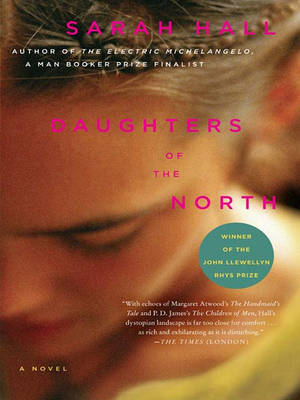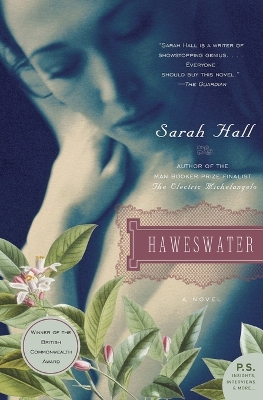P.S.
4 total works
Italy in the early 1960s: a dying painter considers the sacrifices and losses that have made him an enigma, both to strangers and those closest to him. He begins his last life painting, using the same objects he has painted obsessively for his entire career - a small group of bottles.
In Cumbria 30 years later, a landscape artist - and admirer of the Italian recluse - finds himself trapped in the extreme terrain that has made him famous.
And in present-day London, his daughter, an art curator struggling with the sudden loss of her twin brother while trying to curate an exhibition about the lives of the twentieth-century European masters, is drawn into a world of darkness and sexual abandon.
Covering half a century, this is a luminous and searching novel, and Hall's most accomplished work to date.
In Cumbria 30 years later, a landscape artist - and admirer of the Italian recluse - finds himself trapped in the extreme terrain that has made him famous.
And in present-day London, his daughter, an art curator struggling with the sudden loss of her twin brother while trying to curate an exhibition about the lives of the twentieth-century European masters, is drawn into a world of darkness and sexual abandon.
Covering half a century, this is a luminous and searching novel, and Hall's most accomplished work to date.
From the heathered fells and lowlands of Cumbria with their history of smouldering violence, to the speed and heat of summer London, to an eerily still lake in the Finnish wilderness, Sarah Hall evokes landscapes with extraordinary precision and grace. The characters within these territories are real-life survivors, but whether it's a frustrated housewife seeking extreme experience or a young woman contemplating the death of her lover, dark devices and desires rise to the surface. And the human body, too - flawed, visceral, and full of emotional conflict - provides a sensuous frame for each unfolding drama. Uniquely disturbing and deeply erotic, this collection confirms Sarah Hall as one of the greatest writers of her generation. "The Beautiful Indifference", includes "Butcher's Perfume", which was short-listed for the BBC National Short Story Prize in 2010.
It is 1936 in a remote dale in the old, northern county of Westmorland. For centuries the rural community has remained the same, the Lightburn family have been immersed in the harsh hill-farming tradition. Then a man from the city of Manchester arrives, spokesman for a vast industrial project that will devastate both the landscape and the local community. Mardale will be flooded to create a new reservoir, supplying water to the Midland cities. In the coming year this corner of Lakeland will be evacuated and transformed. Jack Liggett, the Waterworks' representative, further compounds the problems faced by the village as he begins a troubled affair with Janet Lightburn. A woman of force and strength of mind, her natural orthodoxy deeply influences him. Finally, in tragic circumstances, a remarkable, desperate act on Janet's part attempts to restore the valley to its former state. Told in luminous prose with an intuitive sense for period and place, Haweswater remembers a rural England that has been disappearing for decades, and introduces a young storyteller of great imaginative and emotional power.
'First impression: here is a new writer of show-stopping genius; everyone should buy this novel ...I stand by my original impressions. Go forth and buy; prepare to weep.' Guardian World rights for Haweswater are controlled by Faber. Polish rights have been sold to Wydawnictwo Literackie.
'First impression: here is a new writer of show-stopping genius; everyone should buy this novel ...I stand by my original impressions. Go forth and buy; prepare to weep.' Guardian World rights for Haweswater are controlled by Faber. Polish rights have been sold to Wydawnictwo Literackie.



